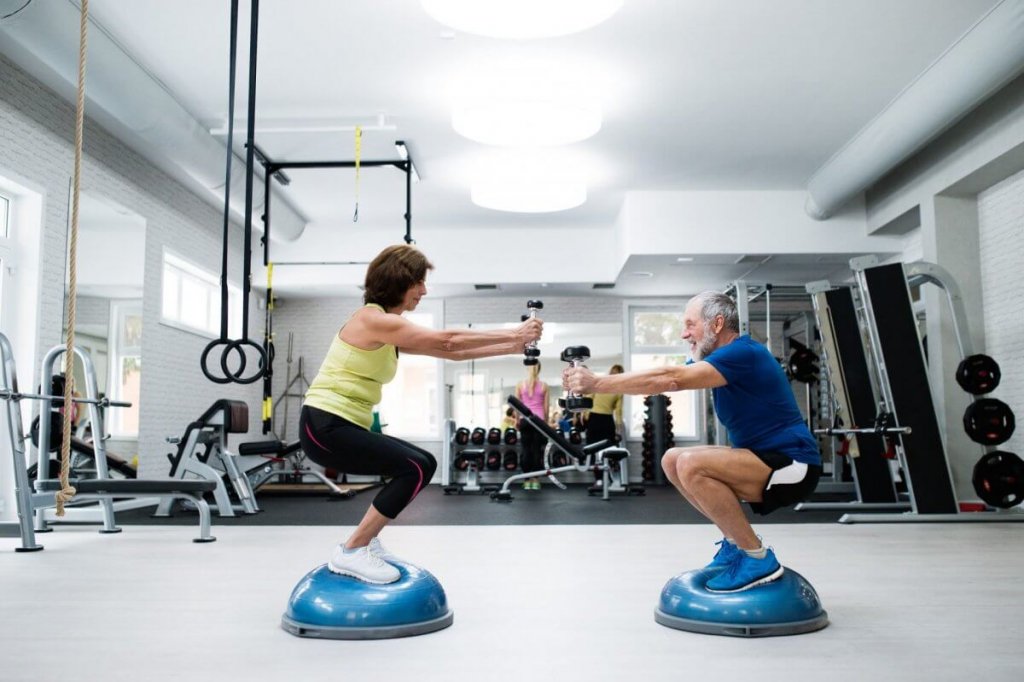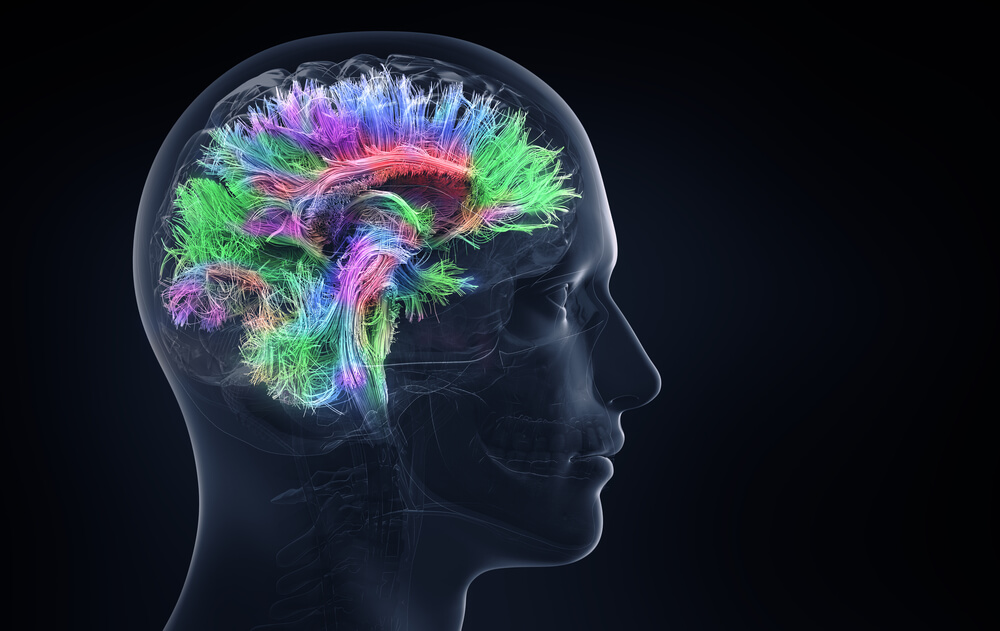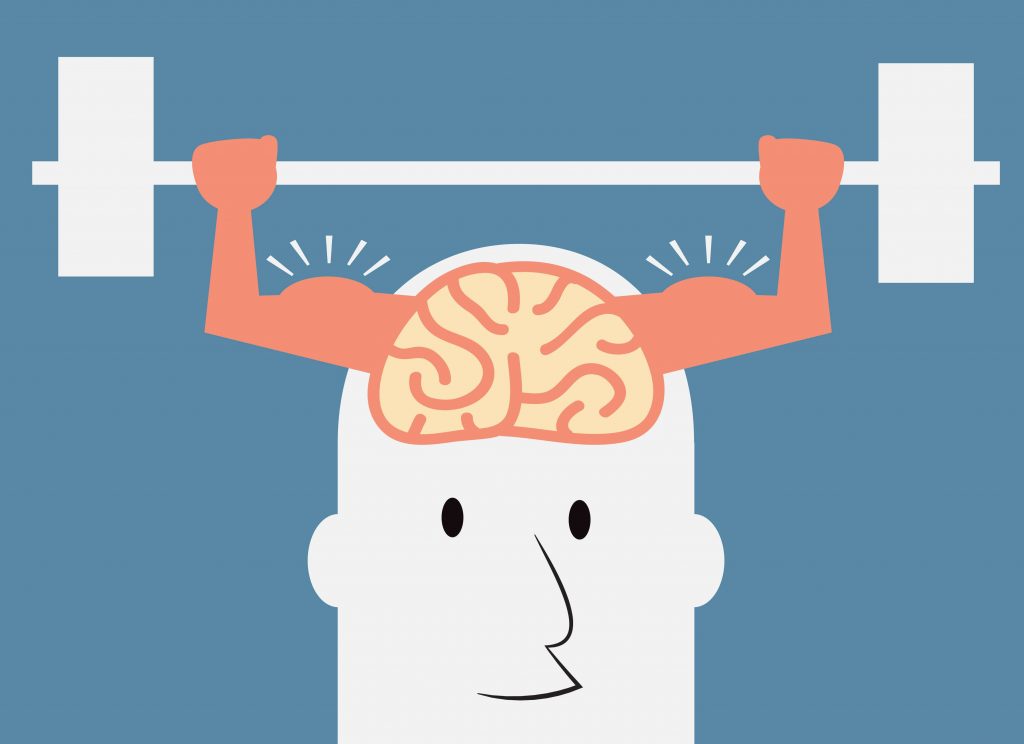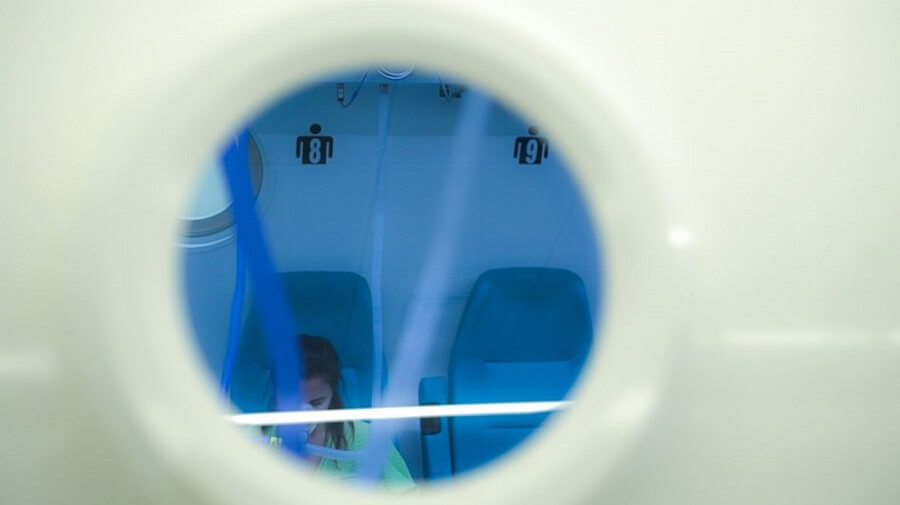5 Ways to Maintain Healthy Cognitive Ability as You Age
You want to stay sharp as you get older, we get it. Everyone hopes to age gracefully and enjoy their golden years full of new experiences and good memories. But as you know, this doesn’t always happen. Some people, as they grow in years, lose mental clarity and ability. Often this happens so gradually that it’s like watching hair grow—a loss of cognitive ability isn’t even noticed until it’s too late to do much about it.
But don’t worry, there is plenty of good news.
There are scientific, practical ways to help you maintain optimal brain health as you get older. As a health and industry leader in cognitive and physical performance, Aviv Clinics provides valuable, research-backed information to help you control your cognitive ability long into your twilight years.
5 Categories of Cognitive Skills You Want to Maintain
When we talk about cognitive ability, what we’re referring to is a set of seven skills that work together to help you in your daily life:
- Short-term memory
- Long-term memory
- Attention—sustained, selective, and divided
- Processing speed, including visual and auditory
- Logic and reasoning
Our brains can do brilliant and beautiful things! We simply need to nurture their natural abilities, so we can slow (or prevent) mental decline.
How to Improve Cognition – Follow Your Doctor’s Orders
Knowing how to improve cognitive skills is the first step toward achieving your goal of staying sharp and full of life for many years to come.
First, are you at risk of cognitive decline as you age?
- Do you have depression?
- Are you lacking sufficient mental activity?
- Are you avoiding physical exercise?
- Would your doctor consider you obese?
- Do you have high blood pressure?
- Have you been diagnosed with Type 2 diabetes?
- Are you a smoker?
To significantly lower your risk of cognitive decline, follow your doctor’s orders and incorporate these five must-have lifestyle adjustments to enhance your cognitive ability.
1. Sink Your Teeth into a Delicious Mediterranean Diet
Good nutrition goes a long way in maintaining a healthy brain and body. Studies show an association between high adherence to a Mediterranean diet and reduced risk of Alzheimer’s disease.
A Mediterranean diet entails:
Eating plenty of:
- Fruits and vegetables
- Fish and seafood
- Nuts and legumes
- Whole grains
- Unsaturated oils (extra-virgin olive oil and avocado oil)
Eating in moderation:
- Poultry
- Eggs
- Cheese
- Yogurt
Eating rarely:
- Red meat
- Refined grains
- Added sugar
- Highly processed foods
Read MIND Your Diet for Better Brain Health for some very interesting and informative guidance from an AVIV dietician, Kathryn Parker, RD, LD/N.
2. Increase Brain Metabolism through the Heart, Muscles, and Mind
Research links moderate exercise to increased brain metabolism and improved overall cognition. Exercise need not be too strenuous, but getting the heart rate up, building muscle, and pumping oxygen through your lungs and blood is very beneficial to your mental health. Physical activity can also improve heart conditions (one of the sources of cognitive decline).
Great examples of moderate physical activity include:
- Jogging or brisk walking, especially up an incline or in the sand
- Stretching morning and night
- Gardening and other household tasks
- Cycling either on a stationary bike or along a path
- Tai chi and yoga
- Playing outside with your children or grandchildren
If you’re an athlete who wants to up your game, Aviv will help you achieve your physical goals. Watch the stories of success.

3. Don’t Let Stress Induce Deleterious Effects
If not managed, chronic stress often impairs memory retrieval and information acquisition, even inducing deleterious effects on brain structure and cognition. To help you bounce back from a stressful situation, consider:
- Engaging in physical activity
- Writing your thoughts in a journal
- Getting more sleep—it’s in the downtime that the brain flushes toxins out and cleans itself, allowing the repair you need from spikes of stress
- Doing relaxation techniques such as meditation or breathing exercises
4. Actively Build Neural Pathways
Identify hobbies or activities that keep your mind engaged. For example, one study discovered older adults who took up new body-connected activities that worked the brain in new ways experienced more memory improvement than those who did not.
Here are a few ideas when wondering how to improve your cognitive skills:
- Learn a new language and travel to where you can use it.
- Begin quilting or other detail-oriented crafts.
- Study photography, take pictures, edit them, and share.
- Try reflective therapy, like journaling, to revisit past negative memories and rewrite them more positively (“what I’ve learned” or “how it made me grow”).
- Invest (especially mentally and physically) into your child’s or grandchild’s hobby. Do they play lacrosse? Learn the rules of play and volunteer for the team. Do they have a knack for mathematics? Be their study buddy.
5. Stay in Touch with Your Trusted Physician
It’s essential to discuss cognitive decline with a trusted physician. The more you understand how your health can affect your brain function, the more you can do to safeguard your cognitive vitality. Discuss your options and advocate for yourself to get next-level care that will keep you healthier for the long term.
Fight Cognitive Decline with Aviv

Maintaining your overall health is beneficial for the longevity of your life. Fight cognitive decline with the Aviv Medical Program. Every person’s body and health are unique, and your medical treatment program should reflect that.
Aviv is the leader in brain performance—our program will keep your brain at its best. Our diverse team of medical professionals will provide the customized attention you need to maintain optimal cognitive health and reverse cognitive decline.
Contact us to learn how we can help.
Play Smart: Can Brain Games Improve Cognitive Performance?
Updated 1 March 2024
Monopoly, Minecraft, solitaire, bridge. Games are often associated with fun times and good memories. Young or old, we love games for the challenge, the excitement, and the enjoyment that they bring us.
But could playing games also boost your brainpower?
Aviv Clinics’ innovative hyperbaric oxygen therapy medical protocol at Aviv Clinics includes the use of brain training to help enhance cognitive functioning.
The hidden world of the brain

The brain is a remarkable organ; we don’t often stop to think about much of what our brain helps us do every day. Something as simple as making a pot of coffee in the morning, when viewed from the brain’s point of view, can get quite complex. The brain has to stir your consciousness, fire the right neurons that travel through nerves, and direct your muscles to move the right way to get you out of bed, get dressed, make your way to the kitchen, and make some coffee.
There is in fact a reason why we don’t think about this process very often; our brain goes to remarkable lengths to make sure you don’t get overwhelmed with too much information. Much of what we do is part of a routine, and the brain likes it that way because it can conserve energy. As we evolved, it was beneficial for the brain to be “lazy” and automate as much as it could, so that you could focus on surviving.
Nowadays, however, with our basic survival needs generally met, the brain doesn’t have as much to worry about. Much of the learning and growing that the brain experiences tends to happen earlier in life, and as we age our brain focuses more on using skills rather than learning new ones. Although it makes things easier for the brain, it’s also how the brain ages and loses neurons. Conditions such as stroke and symptoms of brain fog also can worsen cognitive decline.
The brain can learn at any age

For years, scientists agreed that unlike many cells in our body that repair or replace themselves when damaged, when brain cells (aka neurons) died, they didn’t come back, which turned them into a precious finite resource. We thought that learning was primarily a process for the younger brain. Now we understand the neuroplasticity of the brain–that the brain can in fact grow, learn, and change at any age.
Consider the way that a muscle grows bigger and stronger. Remember what happened the last time you did something physical that made you really sore? “I didn’t even know I had muscles there,” you might have thought. Muscles get sore because they’ve been challenged by something they’re not used to doing.
The brain learns and grows in almost exactly the same way.
When the brain does the same routine activities every day, it’s the mental equivalent of sitting on the couch all day.
But when the brain encounters something new or challenging, it can learn and grow. Novelty spurs the brain to form new neurons and neuronal connections, building networks of brain activity much the way muscles build muscle fibers.
Build brain power with novelty and challenge
Anything that’s new, exciting, or challenging for the brain has the potential to build brainpower and even improve cognitive function.
The brain was designed to figure things out and problem solve, finding solutions to previously unasked questions. When it encounters things that it’s never experienced it pays attention and learning kicks in.
Gaming is a great way to shake things up for your brain without having to abandon the familiarity of your favorite routines.
If you’re wondering if games are a good way to train the brain, the good news is that there’s data emerging showing that cognitive training can improve quality of life and ward off cognitive decline. Dietary changes and exercise can also help.
The ACTIVE study
This study was designed on the premise that cognitive function can be trained and may improve health outcomes and quality of life for older adults. The study aimed to show the actual practical impact that cognitive training can have on the participants’ daily life.
The study targeted three areas of cognitive function that start to decline on average in the mid-60s: reasoning, memory, and speed of processing. A group of 2,802 adults aged 65 and older participated in the study. The treatment group received a total of 10 training sessions lasting 60-75 minutes each, over a period of five weeks, compared to a control group that received no training. A select group from the treatment group was given “booster” training sessions 11 and 35 months later.
To determine the effects of the training, the participants were rated performing various daily living tasks such as getting dressed, meal prep, shopping, managing finances, and so on, in terms of how independently the tasks were completed and the perceived level of difficulty. Other tests were computer-based and tested participant’s reaction time as they responded to changing traffic signs.
The study also looked at secondary measures including improvements in health-related quality of life, the impact on mobility and incidents of falls, and whether driving was affected.
The study found that all areas of cognitive function measured –speed, memory, and reasoning– showed immediate improvement as a result of the cognitive training.
Although some of the improvements dissipated by the end of the follow-up period, the training group still showed a significant improvement over controls five years later. The booster groups that got additional training saw even better improvements.
Improvement was also seen in terms of everyday living, with the experimental group reporting significantly less difficulty in performing daily tasks. The results for self-reported quality of life were also better for the treatment group than the control group.
Overall, participants in the treatment group showed that they had less difficulty performing the functions of everyday living and reported better rates of quality of life. Training also impacted driving abilities, with 40% fewer drivers who ceased to drive and 50% fewer at-fault accidents reported.
What kind of games can train the brain?

The ACTIVE study shows the clear positive impact of cognitive training, and playing games is one of the best ways to train the brain.
Of course, not all games are created equally. While all engage the brain on some level, there are some specific brain functions one should ideally target when choosing what kind of games to play. What should you look for in a game?
Cognitive training at Aviv Clinics currently utilizes a platform called BrainHQ. One of the games, called Double Decision, is a speed training game that’s based on the same speed training intervention that was used in the ACTIVE study.
In Double Decision, the object is to spot an object that flashes in the middle of the screen while simultaneously tracking a second object that flashes in your peripheral vision. The player must then remember both the object in the center as well as the location of the other item. The game is designed to scale in difficulty as you improve, adding more things to distract your attention and further challenging the brain.
Focus on the fun
Although BrainHQ uses games that are optimized for the cognitive skills most in need of training, it’s important not to get too hung up on finding the “best” games for your brain. The truth is that the best game is the one that you’ll play. A game can have all the cognitive benefits in the world, but it won’t do your brain much good if you never play it.
Focus on finding ways to challenge your brain that you enjoy and can ideally do on a regular basis. And feel free to change it up, too–the brain thrives on novelty! Whether it’s a crossword or sudoku puzzle on your own, a game of chess with a friend, or your grandkid’s latest VR video game, there are endless ways to have some fun, get gaming, and train your brain.
Learn more about how to keep your brain at its peak at any age, contact the clinic today
Can Hyperbaric Oxygen Treatment Improve Memory Function?
Recent research led by Dr. Gil Suzin, head of neurocognitive operations at Aviv Scientific, found evidence that oxygen is a rate limiting factor for memory enhancement even in healthy young subjects without memory or neurological impairments. The results of this study indicate that memory function is a continuum that does not reach its maximal ceiling effect at the normal sea level environment even in healthy young individuals.
The research group recruited 56 participants between the ages of 20 and 39. They then randomly assigned each person either to increased oxygen supply using hyperbaric oxygen (two atmospheres of 100% oxygen) or to a control group treated with normal air at normal pressure (1 ATA).

The participants then did a battery of tests that evaluated performance of major cognitive domains, including information processing speed, episodic memory, working memory, cognitive flexibility and attention.
From all the evaluated domains, study participants who received hyperbaric oxygen experienced an improvement in their episodic memory. This group demonstrated a better learning curve, which they demonstrated through the total number of words they recalled from a list of words read repetitively. They also showed higher memory resilience by preserving more words after an interference (an intermediate list of words).
In the study, published in the journal Biomedicals, researchers suggest that:
“the understanding that oxygen is a rate limiting factor for episodic memory even in healthy young adults and the insight that memory can be further enhanced while being in a hyper-oxygenized environment can be important for future development of interventional tools that can be used in daily clinical practice.”
For instance, there is cumulative evidence that patients coming to HBOT recover long-term repressed traumatic memories, and in some of the hyperbaric centers, recovery of repressed memory was added as a potential side effect to the informed consent. Surfacing of inaccessible memories can be crucial for treating diseases like PTSD and other amnestic conditions where knowing the history is essential.
Understanding the biology responsible for our ability to recall specific experiences and also understanding that this ability can be enhanced by HBOT, gives us a powerful tool that can be used for those who needs it.
For more information about how Hyperbaric Oxygen Therapy can improve memory function,
or to schedule a consultation, contact Aviv Clinics, JLT, Dubai U.A.E.